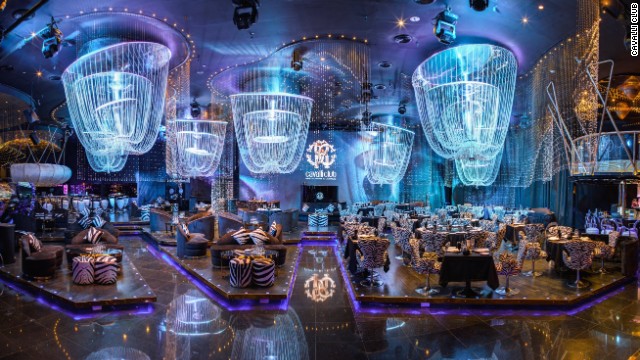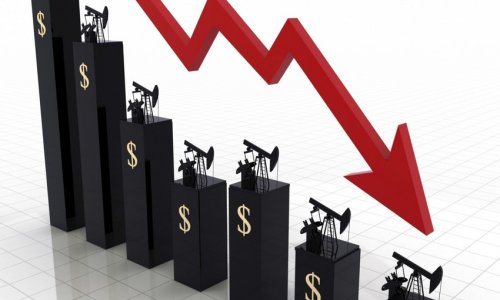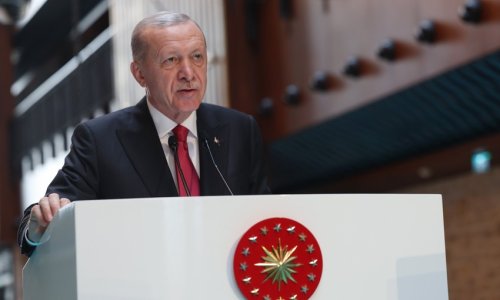Follow us !
Wooing luxury shoppers in the digital age PHOTO
World
20:41 | 18.11.2013

Wooing luxury shoppers in the digital age PHOTO
Luxury fashion houses have long aspired to capture the imagination of the affluent shopper with their sleek designs and bespoke merchandise.But with online-shopping on the rise, enticing customers in-store has become increasingly difficult spurring retailers to dream up new ways to woo and dazzle shoppers.By moving beyond the product, high-end labels are revolutionizing the shopping experience with immersive "retail destinations" that bring the consumer and brand closer together."You are buying into the retail experience as well as paying for the brand experience," says Jon Copestake, chief retail analyst for the Economist Intelligence Unit."Creating consumer shopping experiences and creating this feeling of exclusivity are things that all retail firms will aspire to."In-store adventures Why denim never fades from fashionThe newly unveiled Louis Vuitton "Townhouse" inside London's iconic Selfridges department store is the most recent example of this.After shoppers make their way through the impressive art deco-style entrance, they are met with a striking centerpiece reminiscent of Willy Wonka's own great glass elevator.Wrapped with undulating spirals in the shape of a giant double helix -- the state-of-the-art circular elevator gently revolves inside a glass tube taking customers on a journey of surprise and discovery within the three-storey luxury boutique.Read: Fashion store architectureFour years in the making, the unique 'store within a store' concept -- the first of its kind in the UK -- is the brainchild of French-born designer Gwenael Nicolas, who collaborated with the label."Retail tourism is potentially one of the big growth areas for luxury," says Copestake. "It's not out of kilter with what you would expect firms to do especially given they are looking to be driving foreign consumers and retail tourists into stores."Beating out competitors like Hermes and Chanel, Louis Vuitton's brand value was estimated to be worth a staggering $23.58 billion, according to global brand consultancy Interbrand in May. To put that into perspective, that's more than double Gucci, valued at $9.45 billion.With the luxury world weathering the financial downturn better than some might have expected, high-end luxury brands have had the resource to invest in digital innovation and the in-store experience, explains Copestake.Digital innovation leads the wayBurberry has invested heavily in a savvy digital portfolio masterminded by outgoing CEO Angela Ahrendts, a key to the heritage brand's strong growth.With many of Burberry's customers shopping online, Ahrendts set out to produce a digital platform which combined social media and enterprise software to form an innovative one-stop shop. The move helped revamp the iconic British brand's image while appealing to younger consumers and extending Burberry's global reach.And the digital experiment has proven to be a success as the company announced a 21% increase in global first quarter sales, with China delivering the strongest growth.Back at the Louis Vuitton "Townhouse" in London, the world's most valuable brand has also opted for a digital media experience.With it's "Digital Atelier", customers get a personalized experience with touchscreen technology that allows them to design their own bespoke bags.Fashion blogger Bryan Grey Yambao -- better known as Bryanboy -- agrees that the luxury consumer experience has been enhanced in recent years by labels embracing digital innovation."Whether you are Ralph Lauren or Tommy Hilfiger or a luxury brand like Louis Vuitton or Hermes, your brand really has to go beyond the merchandise that you offer," says Bryanboy."These brands make an imprint in [the consumer's] mind saying "This is what we stand for. This is what we offer. We give you a sense of luxury," he adds."There are so many brands out there and they need to stand out to give the consumer a unique experience that represents the brand as a whole beyond the product that they are offering."Read: Luxury brands move into hotel marketFashion meets lifestyleWith an interest in moving beyond the in-store experience, global fashion firms have also been steadily expanding into lifestyle and hospitality.Both Bulgari and Missoni have partnered with global hotel companies to launch unique holiday destinations, while Ralph Lauren opened a cafe in Paris and Cavalli established a nightclub in Dubai.It's part of a strategy to extend the business beyond retail while immersing clients in each brand's individual universe. But retail expert Copestake says such a strategic move isn't without risk."There is an element of caution here. The problem lies in brand dilution and brands would have to manage this very carefully," he says."They obviously want to maximize their brand potential by diversifying their operations ... but at the end of the day they have to ensure this doesn't come at the expense of the brand itself."(CNN)ANN.Az










